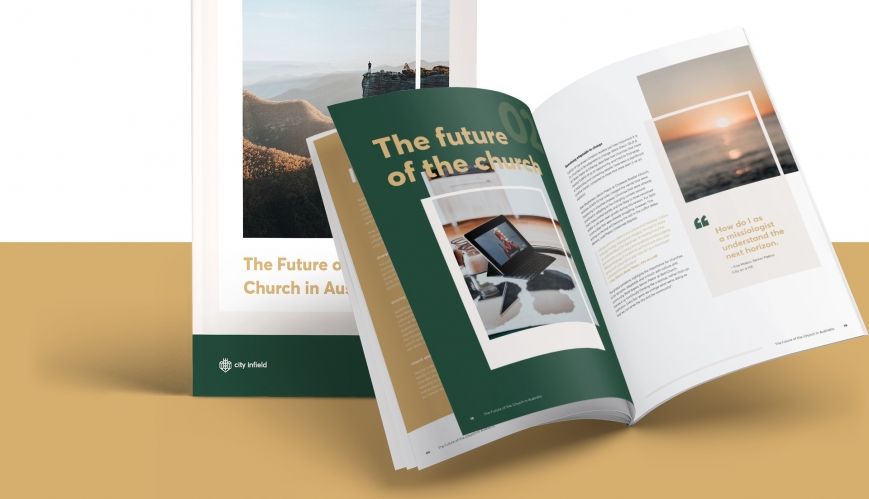The future of church in Australia

The future of church in Australia
18 November 2020
McCrindle Research has released a new report on the future of church in Australia.
As part of a national study on the emerging trends for the Australian Church, McCrindle Research interviewed more than 30 key leaders of Christian denominations, churches and prominent parachurch ministries from across Australia.
The insights from these leaders and an accompanying national survey of 1000 Australian churchgoers have been compiled into The Future of the Church in Australia, a report which is freely available to download. Commissioned by a group of Christian leaders, the report is intended to help church leaders understand the soul of Australia in 2020 and reveal key trends that will shape the Church of the future. Here’s a quick snapshot of the key insights.
Australians are disillusioned with the Church but are spiritually hungry
Christian leaders feel Australians have become disillusioned with the Church as an institution. They point to public breaches of trust from church leadership and church culture often being detached from the everyday Australian experience as key causes of this disillusionment and apathy.
While the Census data shows a decline of Australians identifying with Christianity (from 64 per cent in 2006 to 52 per cent in the 2016 Census), data collected by the National Church Life Survey shows the proportion of Australians regularly going to church has remained steady in this same period (15 per cent in 2006; 16 per cent in 2016).
Even amidst this context of disillusionment, church leaders are seeing a spiritual hunger in Australia consistent with the research data. Despite Australia’s relative wealth and stability (by global standards), church leaders believe people are searching for meaning and fulfilment that isn’t being found elsewhere.
The Church needs to engage the community
While Australia is full of churches large and small, leaders believe the size of a church is of less importance than whether a church is seeking to truly understand and engage their own local community and bring a unique contribution to their neighbourhood. This means reflecting the diversity of their own geographic context and considering what a church can be doing ‘between Sundays’ to serve the needs of their community.
Embracing digital disruption
Just as Australians have shifted to virtual meetings for business and social occasions, churches, too, have been forced to adapt to new digital technologies. Many have been using platforms like Zoom and livestreams for their services to operate ‘church online’, and this has presented opportunities to engage new audiences such as those who may not be comfortable entering a physical church building, or those in new geographic areas who can now engage in a digital form of community. Like the future of the office and events, there is broad recognition that churches of the future will be hybrid, combining a physical gathering with digital platforms to engage as many people as possible.
A ‘new reformation’ moment
The Protestant Reformation in the 16th century was enabled by the invention of the printing press – putting the Bible into the hands of church members for the first time. Church leaders sense we are currently in a similar reformation moment, where COVID-19 has acted as a catalyst for taking responsibility out of the hands of paid ministers and clergy and prompting the average churchgoer to take initiative and responsibility for their neighbourhood. Thirty-eight per cent of churchgoers say they have been more active in ministry during COVID-19 and 47 per cent have invited more people to church online than when they were attending church in person pre-COVID.
Raising up diverse leaders
Church leaders agree there is work to do in improving diversity among church leadership. As Australia becomes increasingly diverse, the Church needs to reflect the diversity of age, gender and culture in the community it seeks to serve. Female leaders and Indigenous leaders are specific cohorts that are currently under-represented, and there are already efforts to ensure that role models exist to inspire new generations that there is a place for them in the Church.
The Church is in a unique position to meet the spiritual and social needs of Australians, providing community and purpose in a context of increasing social isolation. An effective church of the future will be one united in vision, authentic in approach and adaptable to change.
The full report can be downloaded here: cityinfield.com